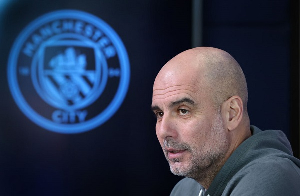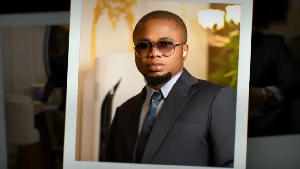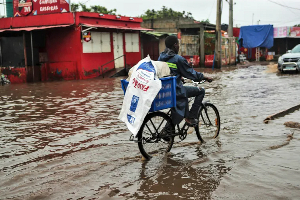The Ghana High Commission in London and the Parliamentary Committee on Constitutional, legal and Parliamentary Affairs on Friday concluded the first outside-country forum, as they tapped comments and suggestions from the Ghanaian diaspora in the United Kingdom on two public interest Bills, the Representation of the People (Amendment) Bill and the Whistle Brower's Bill. The event, preface to a series to be embarked upon by the Committee in Europe and possibly the United States, took place at the Belgrave Square office of the High Commission and was attended by leadership of three political parties, the New Patriotic Party, National Democratic Congress and the Convention Peoples Party and other social organisations and individuals whose number doubled the capacity of the meeting hall.
The High Commissioner, His Excellency Isaac Osei who chaired, in a welcome address made it known in respect of the Representation of the People( Amendment ) Bill that, nearly twenty African countries including Zimbabwe, Niger and South Africa allowed their diaspora to vote in some cases subjected to fulfilment of certain obligations. Discussion of the Bill , he explained, should therefore be seen not as an impossible novelty in the political development of the country by those who have reservations about it. He also said that even though it was the Bill that had aroused the most interest, participants should give thought to the Whistle Blower's Bill.
The Delegation was led by the Majority Leader and Minister of Parliamentary Affairs, Hon.Felix Owusu Adjapong. He expressed regret that an agenda of the magnitude of the two Bills was been boycotted by the main opposition,NDC. He said, every Bill once it got to Parliament was its property and was subjected to many amendments and so the NDC should have a change of mind and join the debate to get the amendment Bill pass into law. Beyond that, it was the responsibility of the Electoral College to come out with procedures and regulation of diaspora participation in future elections.
The Chairman of the Committee, Hon. Kwame Osei Prempeh explained the basis of the amendment whose strength was derived from Article 42 of the 1992 Constitution of Ghana. It '' has an entrenched provision and empowers every citizen of Ghana of eighteen years of age or above and of sound mind to register as a voter and vote in public elections and referenda. This right is not restricted to citizens resident in the country because the reference is to a citizen without qualification.''
Hon. John Ndebugre, the PNC MP for Evalue Ejura and member of the delegation supported this adding that, Article 42 does ''not make it even possible for people to have opinion on whether Ghanaians should vote or not.'' Ndebugre in his wit element explained in folkore terms that, since PNDCL284 contradicted the Constitution, the supreme law of the land, an amendment should take place to ensure the supremacy of the Constitution.
Together with Kojo Armah, CPP MP for Zebilla and Vice Chairman of the Parliamentary Committee on Constitutional and Legal Affairs, the two constitute the non NPP face of the Committee.And they made it known. Kojo Armah said it was obligatory on the part of the CPP to participate in the ''debate of the two Bills because they are important.'' In the political development of the country, he cited instances where boycotts nothwithstanding, had led to the passage of important legislations . An example he offered was the boycott of Consultative Assembly in 1991 by the then Opposition NPP which gave birth to the 1992 Constitution. Another was the unnecessary criticism and threats against the Electoral Commission for increase in Parliamentary composition by the NDC which , he said, kept quiet and rather rejoiced when of the 30 new seats that were created they had 20 after previously arguing that the creat! ion was a diabolical arrangement the NPP made with the Electoral Commission. Political situations where, if the NDC was in power everything was given a negative slant and when the NDC did the same as Opposition was destested and has contributed to suspicion in the country.
The opening remarks seemed to have watered down tension as reflected in the Question and Answer session. Over 90 percent of the participants agreed that the Diaspora should be given the chance to register and vote. It included the NDC representation.There were however disagreements as to when and how. Those in addition to the NDC that expressed reservation said, the Electoral Commission would not be in a position to incorporate diaspora participation; suspect the NPP of a phantom motive in the Bill and, lack of loqistics on the part of the Electoral Commission.
Those who were for the Bill and by far the majority agreed with the Parliamentary Delegation that the job at hand was the passage of the law and that it did not mean that the diaspora could vote in 2008 or even 2012 since it was the Electoral College that was entrusted with that. They also argued that it was not the loqic of the Bill that led in its opposition but the thinking that some political parties because of their past governance drove many Ghanaians into exile and could possibly lose the diaspora votes.
The third middle-way opinion was championed by a broadcaster and lawyer, Janet Narh who believes that Ghanaians outside have lost sense on issues of development to a level where they do not understand many happenings in the country. In her opinion, and one that was almost lonely, Ghanaian diaspora should not be encouraged to vote.
The almost three hours forum was not as tense as the raging debates on local Ghanaian FM stations in London had been. The Delegation admitted they had been exposed to other insights and given a justification to solicit more diaspora views. The participants admitted it had been worthwhile in interviews with Eagle Media, the Commission's media partners.
General News of Tuesday, 16 August 2005
Source: GHANA HIGH COMMISSION,LONDON
Parliamentary Committee concludes
Entertainment











